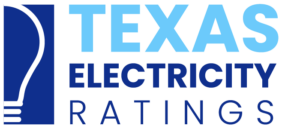In a recent article in the Dallas Morning News, Mitchell Schnurman does an outstanding job of highlighting several of the existing challenges with navigating the Texas electricity market. As someone who has operated a website for electricity in Texas for five years that prioritizes consumer advocacy, I’ve long been beating the drum that the best way to maximize customer savings is through customer education. Unfortunately, it is shocking just how many people really don’t understand how our electricity market works. This is an article that really helps drive home that necessity.
The Texas electricity market can be confusing, and things like minimum usage fees or the differences between fixed and variable plans can be easily overlooked or ignored by customers shopping for different plans available in the market. That is until their bills hit their mailboxes. Schnurman is correct, many of the fees that customers will be tagged with are hidden in paragraphs of legalese and contract fine print and can be difficult to identify if someone isn’t well informed on exactly what to look for when comparing electricity plans.
For example, I work in this space. I know that when I’m shopping for an electricity plan, I need to look first at the plan’s kWh rate, as well as the length of the contract term (I don’t shop for variable plans). Then I need to check the contract cancellation penalty (just in case I decide to leave). Next on the list is the minimum usage charge, both how much that charge is and the electricity thresholds where that charge activates. Next I check the EFLs (electricity facts labels) to see if the electricity company has any other listed items for which they can charge, as well as the plan’s Terms of Service. After that, I check out company reviews from previous customers and see if anything stands out, such as poor customer service or a company with lots of complaints for not mailing out bills consistently…anything that might be a red flag. Finally, I would see if there are any benefits, such as sign-up bonuses or rewards programs that might sweeten the deal.
That’s a lot of steps for shopping for an electricity plan, and I’m certain that a majority of folks shopping for electricity do not go through as rigorous a research protocol as myself. But they should. It’s just like buying a car, the customers that come in the most informed have a better chance of walking away with a much better deal on an automobile. Which is what makes some of the comments by Kenneth Anderson frustrating in the DMN article.
We’re almost 15 years into deregulation in Texas, and many people still don’t know the difference between the TDPS (companies who are responsible for maintaining the poles and power lines) and REPs (the electricity companies who bill you each month). And while the PUC has a point in talking about not wanting to do anything (such as an apples to apples plan to allow easier electricity comparison) to deter the competition of the market, there are certainly things they can be doing to increasing the knowledge base of Texas shoppers. For example, they could change the rules for how plans are presented, highlighting and forcing companies to put the information that most directly impacts a monthly bill front and center when trying to sell their plans, instead of burying it pages into an EFL or the Terms of Service, specifically Minimum Usage charges and thresholds. Many electricity companies in the past have billed customers based on the historical usage of their addresses, as opposed to their actual usage. Having that information front and center for customers to look up to understand an address’s past usage and how it relates to computing a minimum usage charge would be helpful as well.
The point is, that there are a number of ways to make this process easier to understand for customers and better equip them for taking advantage of everything the Texas electricity market offers. And this can all be done without endangering the competition that makes this market greater. In fact, in my opinion, it is the deep pockets of electricity companies and their substantial lobbying budgets that prevent many changes, not the fear of curbing competition between providers. But regardless of the cause, the best solution is for Texas consumers to educate themselves and find the best deals.
